There are many ways you can get involved to help the Kenosha County Substance Abuse Coalition. Please drop us a line through our Contact Form and tell us how you would like to help the KCSAC!
Membership
Becoming a member of the Coalition is a great way to get involved. The Coalition meets quarterly as a whole on the second Tuesday of the month at 10:00 a.m. in February, May, August, and November.
Those meetings feature updates from Co-Chairs of the Coalition and Subcommittees, an educational presentation, and discussion of new business. Co-Chairs are Kari Foss, Karyn Van Heijningen, Jen Freiheit, and Guida Brown.
Subcommittees develop and implement individual action plans and meet monthly between the quarterly Coalition meetings.
There are three levels of membership:
- Active members – attend meetings regularly and are involved in the day-to-day work of the Coalition. Active members are also strongly encouraged to serve on one of the four subcommittees.
- Supporter members – not able to attend meetings regularly but are familiar with the work of the Coalition and support the efforts. Supporter members are encouraged to serve on one of the four subcommittees.
- Extended members – not necessarily aware of the day-to-day work of the local Coalition but are community leaders who may need to be contacted occasionally regarding specific prevention issues. Extended members are welcome to serve on one of the four subcommittees.
Subcommittees
Subcommittees develop and implement individual action plans and meet monthly between the quarterly Coalition meetings.
Subcommittees are:
System Response/Critical Incident – Co-Chairs: Wendy Trefz and Karyn Van Heijningen
Stakeholders will identify and centralize the goals and policies of the multi-disciplinary teams that respond to SUD-related incidents.
Interagency Program for the Intoxicated Driver (IPID) – Chair: Guida Brown
Stakeholders will provide oversight and direction of the Intoxicated Driver Program in Kenosha County.
Opioid Task Force – Co-Chairs: Kari Foss and Jim Poltrock
Stakeholders will address the opioid epidemic in Kenosha County.
Policy and Awareness – Co-Chairs: Levi Stevenson and Sue Roknic
Stakeholders will organize and manage information from federal, state, and local levels of legislation and grant opportunities affecting Kenosha County pertaining to SUDs. This subcommittee is also charged with disseminating needed information to local stakeholders for development of policy, programs, and community awareness.
Treatment and Recovery – Co-Chairs: Amy Anderson and Rosie Kae
Stakeholders will address the needs and resources of SUD treatment and the availability and access to recovery services, which includes but is not limited to support for family and friends of those challenged with SUD.
Volunteer
You are always welcome to join us at an event or other activity. If being an official member of the Coalition isn’t for you, you can still lend a hand as your schedule allows.
Donate
If you can’t support us with your time, we will still gladly accept your financial support. Your generous donations means we can expand and extend our current Discuss, Secure, Dispose campaign to fight opioid addiction in Kenosha County beyond our current plans. We currently can accept checks written to Hope Council, with Kenosha County Substance Abuse Coalition (or KCSAC) designated in the memo line. You can mail the check to the Hope Council office or drop it off in person.
Hope Council
5942 6th Avenue
Kenosha, WI 53140-3703

